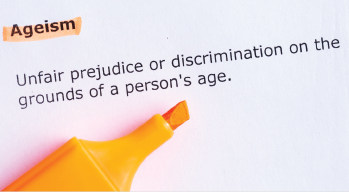
© Sohel Parvez Haque / shutterstock.com
Ageism is defined as stereotyping, prejudice, or discrimination against individuals on the basis of their age. According to the American Medical Association (AMA), 43% of all physicians and surgeons are 55 or older. Specialists are, on average, older than primary care doctors. In addition, around 30% of the current U.S. population is older than 55, and that percentage is increasing thanks to the aging baby boomer demographic. These numbers set the stage for increasing incidents of ageism. Advances in medicine have given humans longevity, but that longevity may be squandered if the medical community has a negative perspective on late-age physicians.
Explore This Issue
June 2020Medical Ethics: Origins and Controversies
The expression “do no harm,” most likely from the ancient medical text, Of the Epidemics, has been used throughout history to express an underlying ethical principle of medicine. It implies that physicians must abstain from acting in a way that potentially harms a patient. This is particularly true today, when a physician’s act of practicing medicine creates malpractice risk. The key to understanding how and when to act or abstain from certain actions in practicing medicine is whether the physician can effectively identify their own biases or proficiency in treating patients.
Physicians may be unaware of the risk of harm to patients from ageism. They may act, or fail to act, because of beliefs they hold relating to a patient’s age. For example, they may attribute an older patient’s complaints of knee or back pain, trouble sleeping, poor short-term memory, or difficulty breathing to normal symptoms of advanced age and not look further for a cause.
Ageism is also apparent when employers exhibit bias toward physicians they perceive as ineffective simply because of their age and attempt to impose mandatory competency assessments or age-based retirement policies. Currently, about 5% of healthcare facilities have age-related screening policies. Common ageism policies include requiring late-age testing for physician competency or skills without objective, evidence-based methods; making disability-related inquiries; or requiring an employee to undergo physical, medical, or cognitive examinations without the reasonable belief or justification that a physician cannot perform the essential functions of their job.
These policies have been met with fierce opposition from physicians. As a result, certain states, such as Utah, have passed legislation prohibiting or restricting healthcare facilities from requiring a physician to undergo competency testing or retirement at a certain age.
A court is more likely to find testing for a particular specialty (e.g., fine motor-skill tests for surgeons) to be legitimate when such tests are evidence based and not subject to arbitrary interpretation or based on age alone.
Although ageism against younger physicians is far less common, it’s surprisingly not unheard of (although rarely reported), particularly in specialty areas in which the knowledge gap is much wider due to experience.